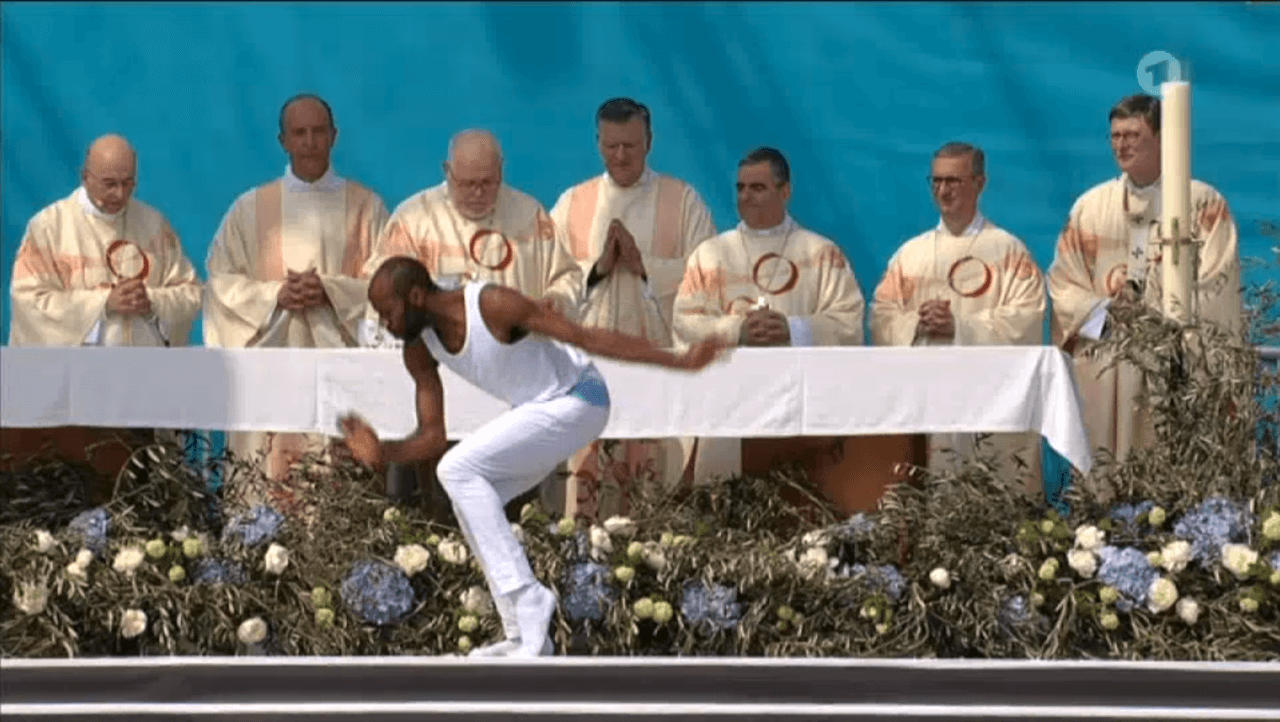Earlier this month, I wrote a commentary on an alleged conflict between the Vatican and the German Church over their proposed “binding synodal process” on issues “arising from the clerical abuse crisis: clerical celibacy, the Church’s teaching on sexual morality, and a reduction of clerical power.”
It was reported by CNA in early September that the decision of the German bishops to proceed with their proposed synodal assembly (which would have major input from an uber-progressive lay group known as ZdK) “comes despite a warning from Pope Francis to the German bishops that they must remain in step with the whole Church.”
For Catholics straining to see this pope in an orthodox light, there appears to be a reflexive need to latch on to these throwaway contrivances that make Francis look as though he actually wants to stop the corruption of the Church, not further it. Which is, I suspect, why he does it. The credulous are easy enough to keep on the bandwagon — just throw them a couple of crumbs and they see it as a feast.
As pertains to this staged dramatic tension between Germany and Rome, carefully choreographed to make the viewer believe they are not in perfect sync — I wrote:
As each of the synods during the pontificate of Francis gets underway, we are treated to what has become a familiar dance. For lack of a better description, we’ll call it the “Rhine-Tiber Two-Step.” It typically takes the form of a carefully calculated good cop/bad cop routine between Rome and the German Church — a church with deep pockets that is widely believed to have bought undue influence by paying the bills of the financially troubled Vatican. There are always some unusually bold steps in the dance, but those are just to dazzle and distract. What we inevitably wind up with as the music stops is some form of Hegelian synthesis that moves the agenda of “reform” (AKA revolution) forward just a little bit farther.
I gave several examples of how this dance works from the past couple of years. And then I laid down my prediction on this specific issue:
Don’t be distracted by the dance. Whatever it is that they really want, the German Church will get its way, and it will become the seedbed for similar results in other countries where the will to follow suit exists.
Yesterday, at LifeSiteNews, Maike Hickson reported that the music had stopped, and the dance was wrapping up as predicted:
Yesterday, on the first day of the German bishops’ fall assembly in Fulda, Cardinal Reinhard Marx gave a press conference, in which he discussed his recent meeting with Pope Francis and Cardinal Marc Ouellet, as well as his plans for the upcoming German synodal path, which, as he insists, is “not a synod” or a “particular council” which would be subject to canon law.
Speaking about his visit and conversations in Rome which ended on September 20, the President of the German Bishops’ Conference and archbishop of Munich-Freising insisted that they have been “throughout positive and encouraging.”
“There is no stop sign,” explained Marx, “it was a constructive encounter” with Ouellet and the Pope, so that “I cannot see that the synodal path now somehow would be endangered.”
That is to say, Pope Francis did not tell Cardinal Marx to stop a project that plans to question the Church’s teaching on celibacy, on sexual morality, on the all-male priesthood, as well as on the link between ordination and governance in the Church. [emphasis added]
When you learn how to identify it, the pattern practically leaps out at you. It would be harder to spot if they were less formulaic, but they’ve found a rhythm and it seems to work for them, so why change? It’s not like anyone is holding them to account.
As regards my suspicion that whatever Germany does will be a prototype for the larger Church, Marx touched on that in his press conference as well:
Putting aside Rome’s objections to the synodal path as a “binding” process, which would include lay involvement, also with regard to the voting process at the end, Cardinal Marx now says that the German synodal path is meant as a “discussion,” at the end of which the German bishops would then send a “votum” to Rome, asking Rome to continue this debate.
“This then is also not the end of the synod,” Marx explained, “[because] then the synodal path goes on to Rome.”
One may wish and work for the idea to “change the Church’s law,” according to the German cardinal. “If nothing would change, we would not have had a council,” he added, making a reference to the Second Vatican Council. “It is even legitimate,” he continued, “to speak of a next council, that is not forbidden.”
In light of these words, one may well imagine that Marx’ plan is to start a synodal path which then will lead to a Third Vatican Council in Rome.
Vatican III, put on by this wretched hive of scum and villainy. Now isn’t that a cheery thought?


